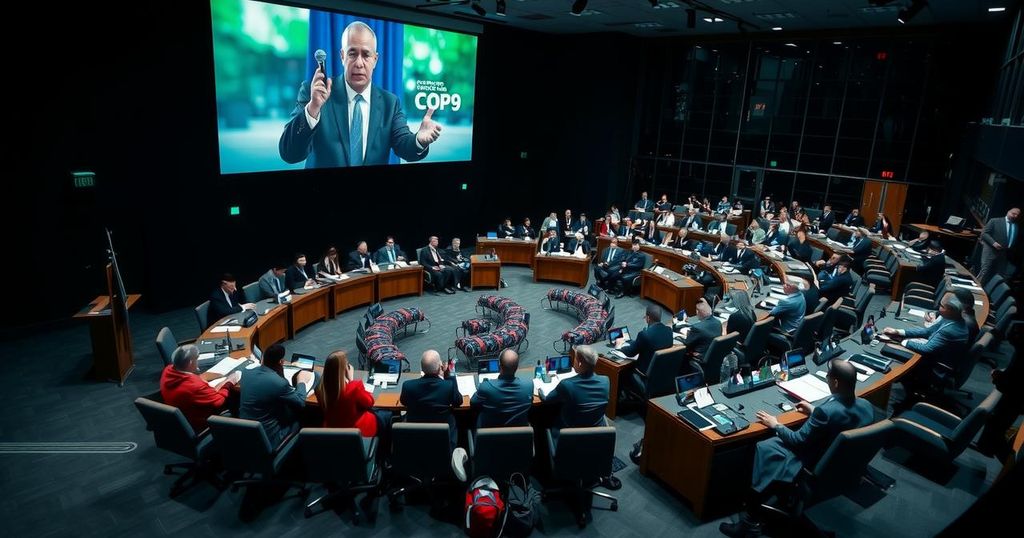COP29 launched with the establishment of carbon-credit trading standards allowing wealthier nations to purchase emissions reductions from developing countries. Critics view this as a limited arrangement. The conference highlights the urgent need for increased climate financing for vulnerable nations. Azerbaijan’s challenge as a host, due to its oil dependency, and reduced attendance among leaders further complicate the summit’s objectives.
The 29th annual United Nations climate conference, COP29, commenced recently, centering on significant environmental concerns. A notable achievement from the initial day was the establishment of unified standards for international carbon-credit trading. This framework allows affluent nations, such as the United States and Japan, to fulfill their emissions reduction obligations by purchasing carbon credits from developing countries, which can be generated through initiatives like reforestation. While this represents progress, some critics labeled the agreement a dubious arrangement that limited broader participation. Another pressing issue at the summit is the financial requirements of vulnerable nations in addressing climate change impacts and developing renewable energy. Experts advocate for an increase in the targeted annual climate financing to at least $1 trillion per at-risk country, given the current target is deemed insufficient. The conference in Baku, Azerbaijan, garners additional scrutiny as the nation’s economy heavily relies on oil and gas, which constitutes 90% of its export revenues. Observers highlight that Azerbaijan’s selection as host is politically motivated, with reports indicating that Russia blocked consensus from countries opposing its actions in Ukraine. Mukhtar Babayev, the president of COP29, previously remarked on Azerbaijan’s lack of a strong green transition reputation. Participation levels appear diminished, with 48 fewer world leaders attending compared to last year’s conference. Notably absent are Xi Jinping and Joe Biden, presidents of the largest oil-producing nations, alongside a notable boycott by the island nation of Papua New Guinea, which criticized the event as unproductive. Moving forward, the United States is expected to unveil updated climate commitments by year-end, although these may face revaluation due to anticipated policy reversals under President-elect Donald Trump. Top U.S. climate diplomat John Podesta expressed dissatisfaction regarding the implications of the election results on climate initiatives.
The Conference of the Parties (COP) is an annual event that brings together global leaders to discuss and strategize on climate change issues. Historically, these conferences aim to facilitate agreements on environmental measures and financing needed to combat climate change effectively. COP29, in particular, faces challenges related to participation and geopolitical tensions affecting consensus on crucial climate policies. Moreover, the growing urgency for substantial financial commitments from wealthier nations to support vulnerable economies underscores the critical nature of the discussions held at this year’s summit.
In summary, COP29 marks significant advancements in carbon credit trading standards but simultaneously highlights the challenges of political participation and financial commitments in addressing climate change. The backdrop of Azerbaijan’s oil-dependent economy, alongside notable absences of key leaders, presents a complex landscape for achieving pivotal climate goals. As the conference progresses, the critical dialogue regarding enhanced financing for vulnerable nations remains a focal point, underscoring the urgent need for collaborative global action against climate change.
Original Source: www.morningbrew.com







